What are the emotional stages of addiction recovery
Navigating the Emotional Landscape of Healing from Addiction

Understanding the Emotional Journey in Addiction Recovery
Recovery from addiction is a complex journey marked by various emotional stages. These stages are crucial for understanding how individuals cope with their addictive behaviors and the psychological shifts they experience across different phases of treatment. This article explores the emotional stages during recovery, their significance, and the psychological resilience needed to sustain long-term sobriety.
The Initial Shock: Denial and Emotional Fragility
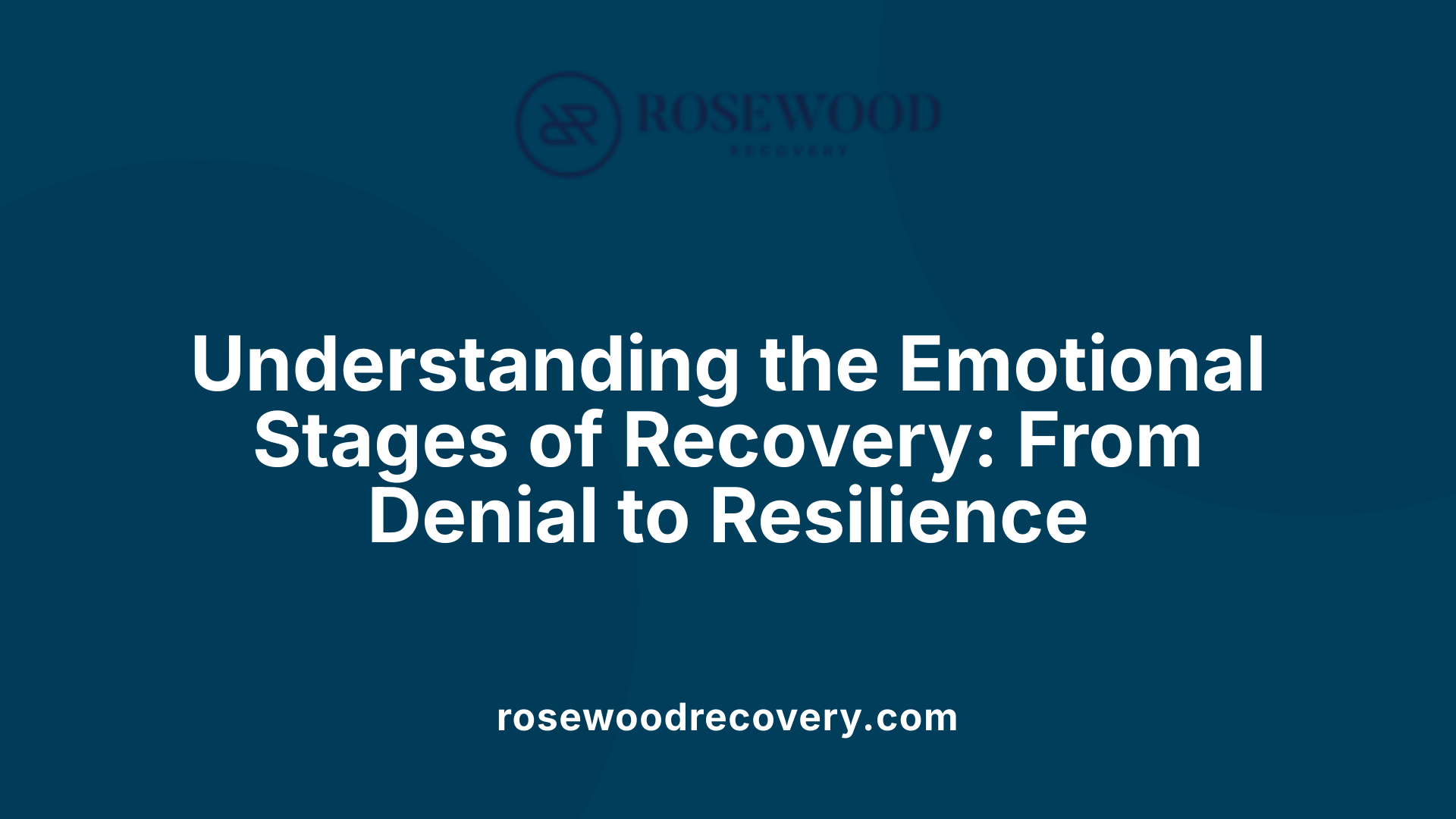
What are the emotional stages of addiction recovery and their psychological significance?
In the early phases of addiction recovery, individuals often experience intense emotional vulnerabilities, which are critical to understand for effective treatment. During the precontemplation stage, many are in denial about their addiction, unable to see how substance use impacts their lives. This stage is characterized by resistance and an emotional state marked by defensiveness and emotional numbness.
As individuals progress into contemplation and preparation, they begin to acknowledge their issues. Emotions such as guilt, shame, and feelings of hopelessness often surface, reflecting inner conflict and ambivalence about change. These feelings can make early recovery emotionally turbulent, with clients feeling exposed and fragile.
Moving into the action stage, clients encounter a mix of hope and frustration. They might experience anger towards themselves or others and sadness over lost opportunities or relationships. These feelings are part of the natural process of confronting their past and ongoing struggles.
Sustaining recovery over the long term requires developing skills to regulate these emotional waves. Learning to tolerate and express feelings constructively helps prevent relapse. Emotional sobriety, or being able to accept and navigate life’s emotional landscape without substance use, is essential for lasting recovery.
Support systems like therapy, support groups, and self-care routines play vital roles in this process. They help build resilience and foster a deeper understanding of emotional triggers and responses. Recognizing that emotional fluctuation is normal in recovery can reduce self-criticism and promote patience.
Overall, managing emotional stages with empathy and support enhances psychological healing. It enables individuals to rebuild self-esteem, develop healthier coping mechanisms, and sustain sobriety. Understanding these emotional dynamics is fundamental to fostering resilience and long-term success in addiction recovery.
The Middle of the Journey: Recognition, Vulnerability, and Emotional Growth
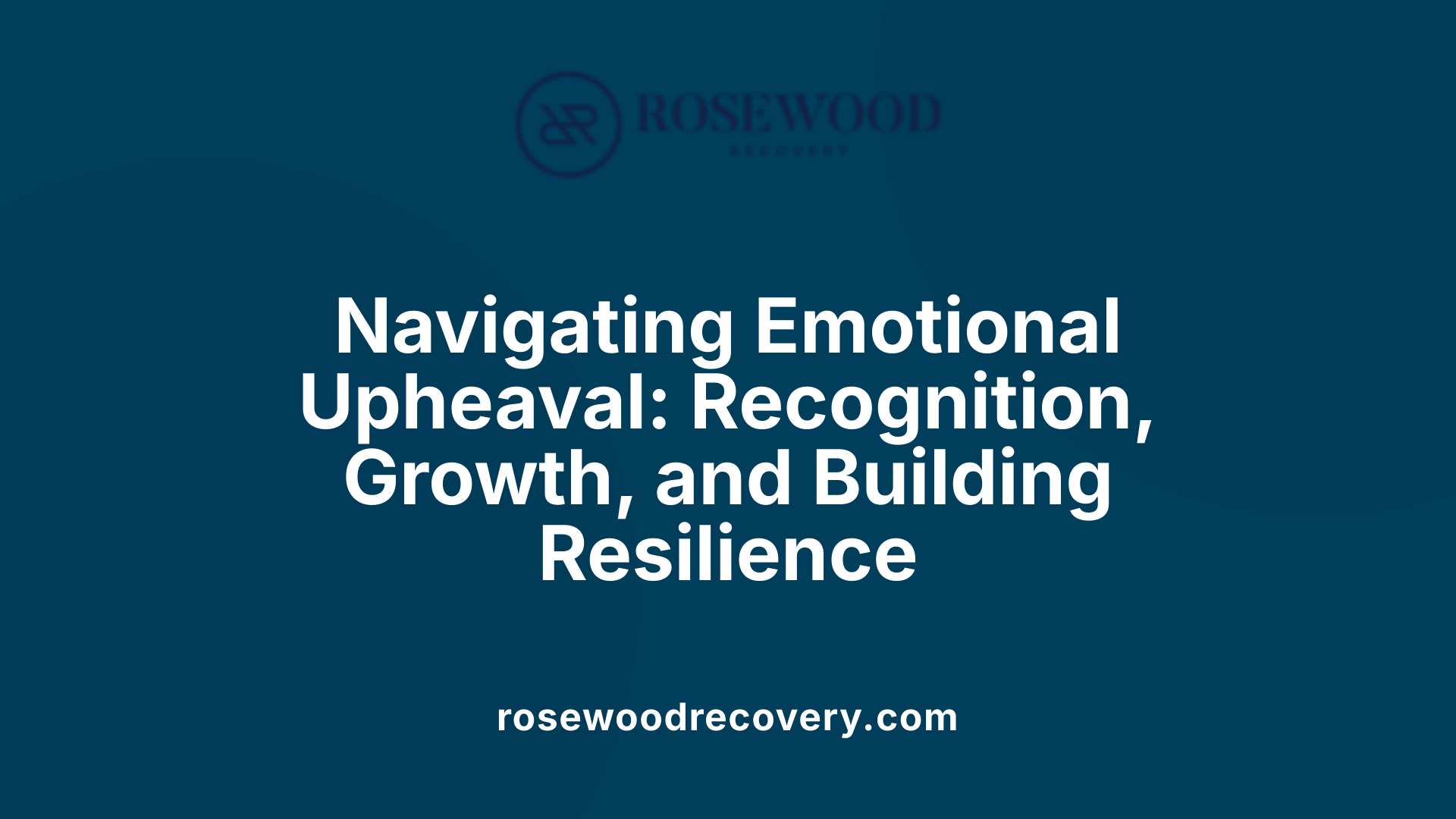
What are the emotional stages of addiction recovery and their psychological significance?
During the middle phase of recovery, individuals often experience significant emotional upheaval. This stage is marked by a growing awareness of how substance abuse has caused problems in their personal and professional lives. Clients might feel emotionally exposed or vulnerable as they start to recognize the true extent of their struggles.
In this phase, many begin to differentiate, identify, and name their feelings such as shame, guilt, frustration, and sadness. This emotional recognition is a vital step towards building emotional resilience and differentiating their identity from their addiction. It signifies a move away from denial and resistance, which are common in earlier stages, and towards emotional maturity.
Achieving emotional growth involves developing the ability to tolerate, express, and communicate feelings effectively. Group therapy plays a crucial role here, providing a safe space for clients to confront their emotional challenges through peer support. Support mechanisms like emotional regulation skills, mindfulness practices, and therapy help clients manage stress and prevent relapse.
Attaining emotional sobriety is essential for long-term recovery. It means being able to navigate life’s emotional landscape without relying on substances. This involves accepting all emotions—joy, grief, anger, and hope—as natural parts of life. Personal growth during this stage is often facilitated by counseling, support groups, and engaging in meaningful activities.
Understanding these emotional transitions not only aids psychological healing but also strengthens the individual's resilience. This emotional maturation supports sustained sobriety, equipping clients to handle future challenges effectively.
In summary, the middle stage is a critical period where emotional upheaval gives way to recognition and growth, laying a foundation for lasting recovery.
Late-Stage Recovery: Deepening Self-Awareness and Managing Personal Issues
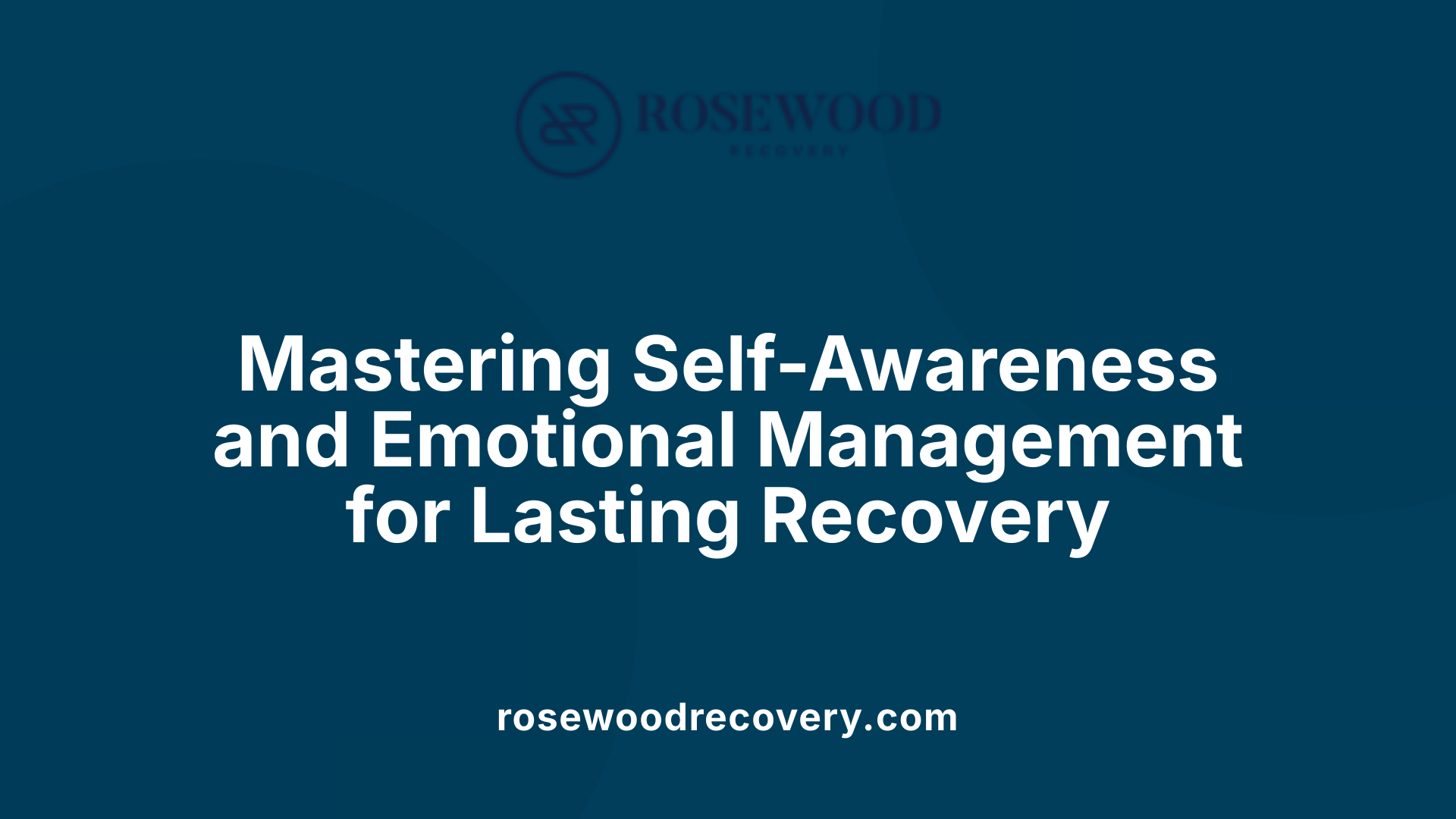
What are the emotional stages of addiction recovery and their psychological significance?
In the later phases of addiction recovery, individuals often encounter complex emotional challenges that demand increased self-awareness and emotional management. During early recovery, such as the precontemplation and contemplation stages, a person may deal with denial and resistance, often feeling overwhelmed by feelings like guilt, shame, or sadness. As recovery progresses into the middle and late stages, emotional experiences can intensify, including feelings of vulnerability, frustration, and anger as individuals confront underlying issues and past relational wounds.
Understanding these emotional stages is vital for long-term sobriety. In late-stage recovery, the focus shifts toward developing emotional insight—being able to identify, tolerate, and effectively communicate feelings. This process helps diminish emotional dysregulation, which is often a trigger for relapse. Key to this phase is achieving emotional sobriety, where a person learns to manage life's emotional ups and downs without resorting to substances.
Supportive therapies like cognitive-behavioral therapy (CBT) and dialectical behavior therapy (DBT) play a crucial role in fostering emotional regulation skills. Support groups and self-care practices—such as mindfulness, journaling, and healthy relationships—also contribute to maintaining emotional balance. Recognizing and working through unresolved emotional issues—like trauma or low self-esteem—are essential steps for deepening self-awareness.
Ultimately, this emotional growth enhances resilience and helps individuals sustain their recovery long-term. By mastering emotional regulation, they can better handle life's inevitable stresses and keep progressing on their recovery journey.
Core Concepts: Emotional Resilience and Sobriety as Pillars of Long-Term Recovery
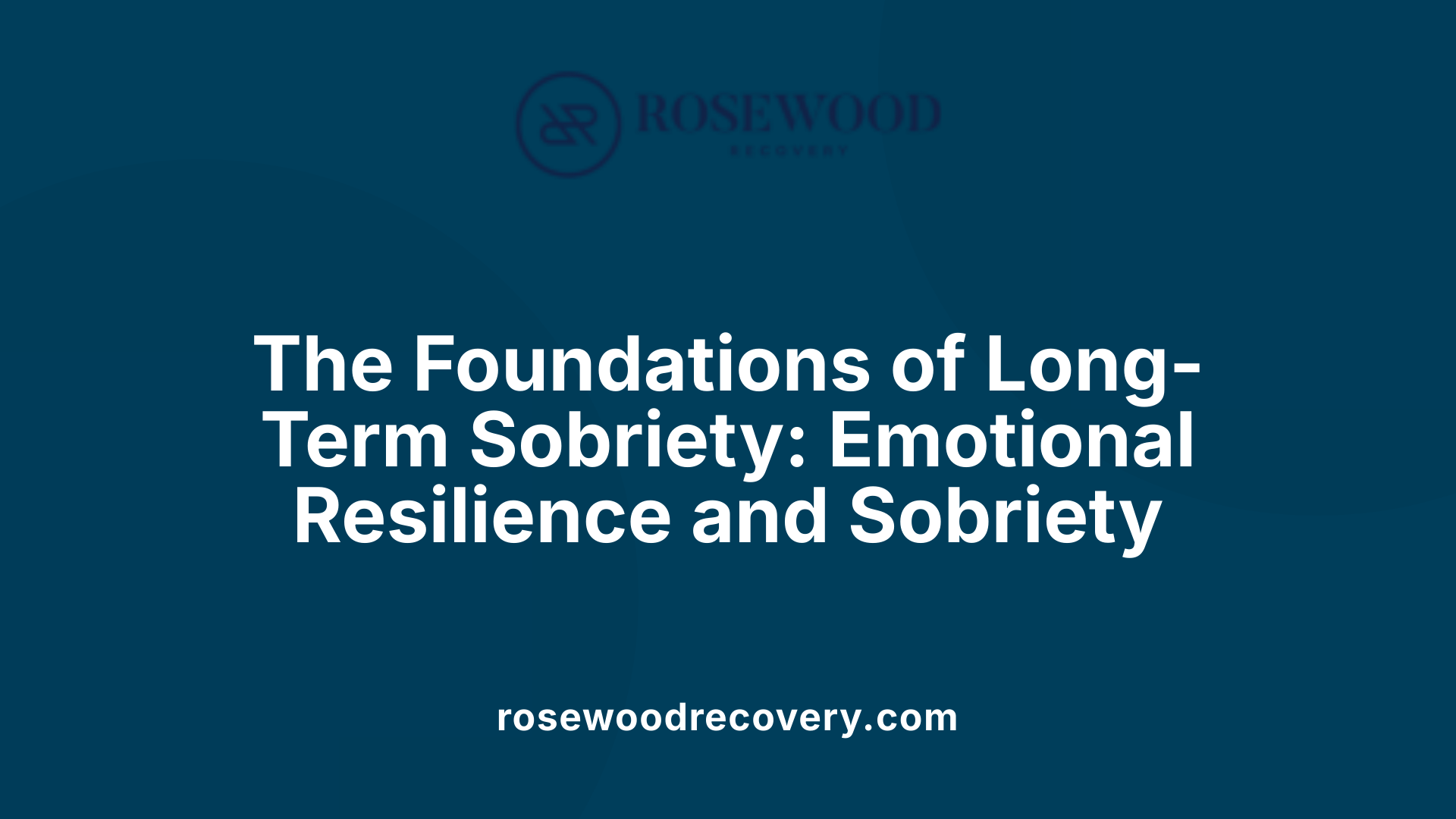
What is emotional resilience and emotional sobriety in the context of recovery?
Emotional resilience refers to the ability to adapt positively and recover from setbacks, stress, or emotional challenges that occur during addiction recovery. It involves developing inner strength that helps individuals cope with cravings, emotional upheavals, and the inevitable obstacles of long-term sobriety. Building resilience entails cultivating healthy coping skills, fostering supportive relationships, and maintaining a positive outlook.
Emotional sobriety goes beyond resilience by emphasizing emotional balance and stability. It means managing emotions effectively without turning to substance use as a form of self-medication. Emotional sobriety allows individuals to experience a full range of feelings—such as joy, sadness, anger, and grief—without being overwhelmed or controlled by them. This balanced emotional state is essential for sustaining long-term recovery.
Strategies for building resilience and emotional stability include engaging in therapy (such as cognitive-behavioral therapy or dialectical behavior therapy), practicing mindfulness and stress reduction techniques, maintaining healthy social connections, and using self-care practices. Additionally, participating in support groups like 12-step programs or other community-based networks can bolster resilience through shared experiences and mutual support.
Ultimately, fostering emotional resilience and sobriety equips individuals with the tools needed to navigate life's challenges, foster personal growth, and maintain their recovery journey over time. The combination of these qualities creates a strong foundation for enduring sobriety and emotional well-being.
Trauma and Emotional Adjustment: The Roots of Addiction and Long-Term Healing
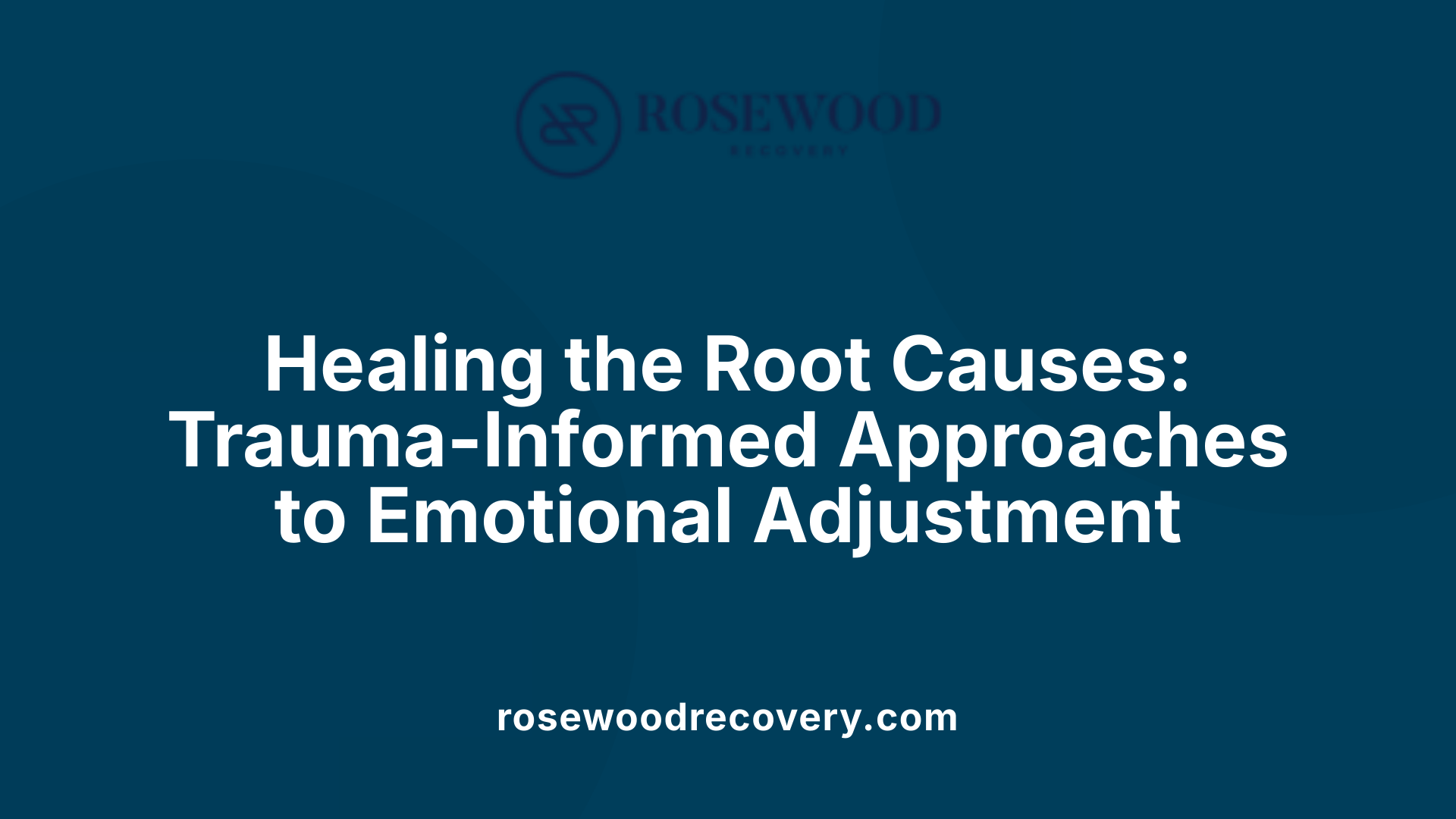
What role do emotional adjustment and trauma play in addiction recovery?
Trauma and emotional struggles are often at the core of addiction issues. Many individuals turn to substances as a way to cope with unresolved pain from experiences like abuse, neglect, or violence. Such traumatic events can alter brain chemistry, amplifying feelings of anxiety, depression, or anger. These emotional states make it harder to recover without targeted support.
When trauma remains unaddressed, it can lead to a cycle where mental health conditions like Post-Traumatic Stress Disorder (PTSD), depression, and anxiety coexist with substance use disorders. This interplay creates complex challenges for recovery, requiring more than just detoxification or medication.
Effective treatment involves trauma-informed care that recognizes the pervasive impact of trauma on mental health and behavior. Therapies such as Eye Movement Desensitization and Reprocessing (EMDR), Cognitive-Behavioral Therapy (CBT), and family involvement help individuals process emotional wounds. Such approaches aim to develop healthier coping skills and emotional resilience.
Building a safe, supportive environment is essential. Long-term healing depends on addressing both addiction and underlying emotional issues, fostering emotional regulation, self-awareness, and empowering individuals to rebuild their lives free from the cycle of trauma and substance dependence.
For more information on trauma-informed recovery approaches, consider exploring dedicated resources and specialist programs that focus on integrated treatment strategies.
Co-Occurring Disorders and Emotional Factors: Intertwined Challenges in Recovery
How do co-occurring disorders and emotional factors impact addiction recovery?
The presence of mental health conditions alongside substance use disorders greatly influences the recovery process. Individuals with co-occurring disorders often face heightened challenges because their mental health issues—such as depression, anxiety, or trauma—can drive substance misuse as a form of self-medication.
Emotional factors like persistent sadness, guilt, shame, anger, or emotional instability also complicate recovery efforts. For example, depression affects motivation and energy levels, making it harder to stay committed to sobriety. Likewise, anger and emotional dysregulation can trigger relapse by overwhelming a person's ability to manage their feelings constructively.
These intertwined issues increase the risk of setbacks if not addressed properly. Without comprehensive treatment, emotional struggles can weaken coping strategies, leading to cravings and environmental triggers that prompt relapse.
Holistic treatment approaches are essential to manage this complexity effectively. Integrated therapies such as cognitive-behavioral therapy (CBT), dialectical behavior therapy (DBT), and medications targeting mental health ailments are crucial components. These methods help individuals build emotional resilience, manage symptoms, and improve overall mental health.
Addressing both addiction and mental health concurrently not only fosters better stability but also enhances long-term recovery success. Supporting emotional well-being, stabilizing co-occurring conditions, and offering continuous support are vital for helping individuals sustain sobriety and achieve holistic recovery.
Conclusion: The Ongoing Path Toward Emotional Balance and Lasting Sobriety
How does the progression of emotional responses occur during recovery?
Recovery from substance use disorder involves a dynamic emotional journey. Early stages often include denial, resistance, and ambivalence, where feelings of hopelessness, shame, and frustration are common. Clients may struggle with intense emotions while trying to accept their condition and resist relapse.
As individuals advance through the stages of treatment, there is often a resurgence of emotional regulation and self-awareness. This period brings about feelings of hope, motivation, and a deeper understanding of oneself. Emotional growth is facilitated through therapies like group support, which help confront resistance and process difficult feelings.
In the middle to later phases, managing mood swings, cravings, and underlying emotional issues such as depression and anger becomes central. Clients develop coping skills that allow them to better handle stress and emotional upheavals. Confidence and acceptance gradually replace negative feelings, reinforcing their commitment to sobriety.
Throughout this journey, emotional responses are continuously evolving. Maintaining resilience requires ongoing therapeutic support to navigate setbacks and reinforce psychological stability. Recognizing these stages helps individuals stay committed and realize that recovery is a gradual process of building emotional strength and balance.
Why are support systems and therapy important?
Support networks like counseling, group therapy, and community programs serve as crucial pillars in sustaining recovery. They provide a safe space for expression, accountability, and shared experiences that normalize emotional struggles.
Therapy helps clients understand the roots of their emotional dysregulation, address co-occurring mental health issues, and develop healthier ways to respond to life's challenges. Techniques such as cognitive-behavioral therapy and dialectical behavior therapy are particularly effective in teaching emotional regulation skills.
Support systems also foster resilience by encouraging connection, reducing feelings of isolation, and offering ongoing motivation. They act as an emotional anchor during difficult times, guiding individuals back to recovery when setbacks occur.
What encourages continued effort and patience?
Recovery is a long-term commitment that requires patience, persistence, and compassion for oneself. Every step forward—no matter how small—is a victory.
It's essential to understand that setbacks can happen and are part of the process, not a failure. Maintaining a hopeful outlook and engaging continuously in therapy and support groups can help build resilience over time.
Celebrating progress, setting achievable goals, and practicing self-care are vital. With sustained effort, individuals can build a balanced and fulfilling life, embracing emotional stability and long-lasting sobriety.
This ongoing journey underscores the importance of patience and perseverance, reminding us that emotional health and recovery are interconnected pursuits that demand ongoing nurturing and support.
Fostering Long-Term Emotional Well-Being
The journey of addiction recovery is deeply emotional and multifaceted. Understanding the stages—from initial denial and emotional vulnerability, through recognition and emotional upheaval, to deepening insight and resilience—is essential for fostering long-term sobriety. Building emotional resilience and achieving emotional sobriety are vital components, helping individuals cope with setbacks, trauma, and co-occurring disorders. Support systems, therapy, and personal effort play crucial roles in managing emotions, ensuring sustained recovery, and cultivating a balanced, fulfilling life. As recovery is a lifelong process, cultivating patience, self-awareness, and continuous support are fundamental for enduring emotional health and long-term sobriety.
References
- National Helpline for Mental Health, Drug, Alcohol Issues - SAMHSA
- 5 Stages of Treatment - Substance Abuse Treatment: Group Therapy
- Understanding The 5 Stages Of The Addiction Recovery Process
- Steps to Recovery | Harm Reduction
- Addiction 101: Stages of change - CAMH Public Courses
- Depression, Anger, & Addiction: The Role of Emotions in Recovery
- Treatment and Recovery | National Institute on Drug Abuse (NIDA)
- Embracing Emotional Sobriety: Empowering Yourself in Recovery
More Articles
Recovery Begins Here
Click below to get in touch and schedule a consult call with our team to begin your journey towards happiness and freedom.
Rosewood Recovery does not discrimate against any person because of the race, color, religious creed, ancestry, age, sex, sexual orientation, gender identity, national origin, handicap or disability or the use of a guide or support animal because of the blindness, deafness or physical handicap.





